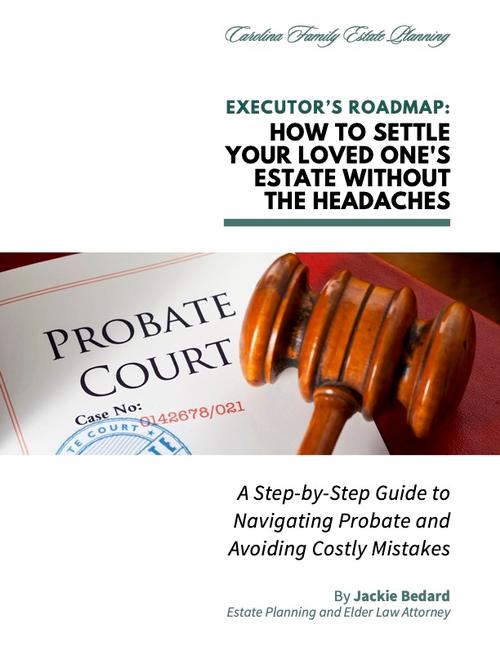The death of a spouse can be one of the hardest losses a person can experience. And as if it weren't already hard enough, there's the added stress of sorting out the estate and financial matters. As a surviving spouse, it's important to understand what your rights are, including understanding the Spousal Allowance, the Dependent Allowance, and the Elective Share.
What is the Year's Allowance? What Is The Spousal Year's Allowance?
North Carolina law provides for a year’s allowance for the surviving spouse and dependent children of a deceased individual.
Under North Carolina law, the surviving spouse of the Decedent is entitled to the first $60,000 (this was increased from $30,000 beginning on January 1, 2019) of the estate. Similarly, a dependent child of the Decedent may be entitled to a $5,000 allowance from the estate.
In some instances, the surviving spouse may apply for a higher spousal allowance based on the income of the deceased spouse. The maximum spousal year's allowance is one half of the average annual net income of the deceased spouse for the three years immediately prior to the deceased spouse's death. Net income means the deceased spouse's take-home pay after taxes.
Both the year's allowance for dependent children and the spousal year's allowance are available regardless of whether the deceased spouse had a will or not.
The Court has specific forms for claiming the Year’s Allowance. A Surviving Spouse can also renounce the Spousal Allowance if he or she does not wish to claim it.
Wondering why these laws exist? The laws were originally created to protect widows and children of a decedent and provide them with some assets to meet their needs while the rest of the estate was being administered.
What Assets Are Available to Pay the Year's Allowance and Spousal Year's Allowance?
The spousal allowance is paid using personal property such as money in bank accounts, automobiles the deceased spouse owned, or similar. Unless there is a secured lien against an asset, the spousal year's allowance gets priority before claims against the estate, meaning that the spousal allowance gets paid before other debts or claims. An example of a secured lien would be a car loan against a car. If there is a secured lien, the value of the lien will be subtracted from the value of the asset first. For example, if the deceased spouse owned a vehicle worth $20,000 that was subject to a car loan lien of $15,000, then only $5,000 of the car's value can be applied toward the spousal allowance.
Real estate, such as land or buildings, cannot be used to satisfy the spousal year's allowance.
If initially there is not enough personal property available to cover the entire $60,000 spousal allowance, the clerk of court will enter a deficiency judgment in the estate. Thus, if additional assets are later found, those assets can be used to pay the remainder of the spousal allowance to satisfy the deficiency judgment.
How Long Does A Surviving Spouse Have to Claim the Spousal Allowance?
Generally, the personal representative of the estate (often called an executor or administrator) is responsible for assigning the spousal allowance to the surviving spouse so long as the spouse applies for the spousal allowance within one year of the deceased spouse's death.
If there is no personal representative, or if the personal representative fails to assign the spousal allowance, the surviving spouse or their attorney can apply directly to the clerk of court using Spousal Allowance Form and submitting the filing fee with the form.
If the surviving spouse wishes to apply for more than the minimum spousal allowance of $60,000, the surviving spouse will need to file a petition for a special proceeding before the clerk of court. This filing must show that the spouse is entitled to the greater amount and that the estate is worth more than $60,000.
Can A Surviving Spouse Be Disqualified From Receiving the Spousal Allowance?
A surviving spouse may be disqualified from receiving the spousal allowance if:
- The surviving spouse waives his or her right to the year's spousal allowance.
- The surviving spouse waived his or her right to the spousal allowance in a valid prenuptial or postnuptial agreement.
- The surviving spouse is determined to be a "slayer" under the North Carolina slayer statutes because they plead or are found guilty of killing the deceased spouse.
- If the deceased spouse and the surviving spouse were legally separated at the time of the deceased spouse's death.
- If the surviving spouse was living in adultery at the time of the deceased spouse's death.
- If the surviving spouse is deemed to have "willfully abandoned" the deceased spouse prior to the deceased spouse's death.
- If the marriage between the deceased spouse and the surviving spouse is determined to be invalid.

